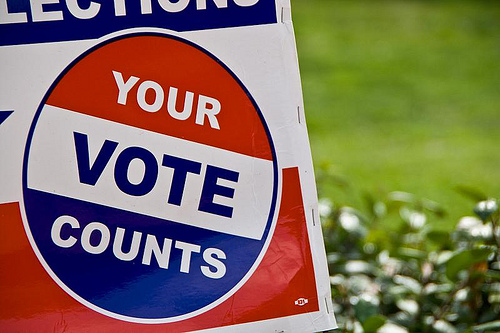Latino Voters Poised to Influence the Next Congress

 By Raisa Camargo, Voxxi
By Raisa Camargo, Voxxi
Grassroots organizations that have actively participated in the presidential campaign this year can almost breathe a sigh of reassurance.
The projection that 12.2 million Latinos would turn out in this election came close to achieving that goal, but the National Association of Appointed and Elected Officials (NALEO) asserted they would continue to analyze the results.
“The NALEO Educational Fund had projected that 12.2 million Latino voters would have participated in this year’s presidential election,” said Arturo Vargas, executive director of NALEO during a conference call on Wednesday.
Based on the exit poll of 10 percent of voters being Latino and with a national tally approaching 120,000 million total voters, “it seems that we are reaching very close to our projection of those 12 million voters,” he said.
In 2008, there were 9.7 Latinos who voted in the election and they comprised 7.4 percent of the total electorate. Many analysts suggest Latinos played a decisive role on many down ticket races.
“The Latino vote is on the rise,” affirmed Clarissa Martinez, civic engagement director of the National Council of La Raza. “It’s clear that when candidates take a stand on issues that matter to this community, engage in meaningful outreach, and build a relationship with these voters the community responds.”
Will Latino candidates unite in the next Congress?
These numbers further position Latinos in the new Congress to make inroads. A more pressing question is whether or not that will translate to actual results. Advocates are quick to project that the president will need to deliver on his promise for immigration reform in the next term or face retaliation.
Yet, Arnold Torres, a political consultant in California and former executive director of the League of United Latin American Citizens, believes Latino influence in the next Congress will largely depend on whether Hispanic politicians work together to present a vision that will unite them.
“Latinos are not monolithic,” said Torres. He pointed to the examples of Tea Party backed Ted Cruz and Marco Rubio. On that note, he affirmed that there are a majority of Latino Democrats in the House.
“Will all of them get together and present one agenda, one vision that is a reflection of where they come from?” he said.
As of today, the number of Latinos who are joining the House of Representatives tallied to a total of 28. There are also new Latino members in the United States Senate pushing the total to three Latinos, all of them are of Cuban descent.
The new faces in the House will include: Tony Cardenas from the San Fernando Valley in Los Angeles, Juan Vargas from the San Diego area in southern California, Raul Ruiz in southern California, and Michelle Lujan Grisham in New Mexico.
Other notable wins for the Latino caucus in the House include Solomon Vella in southern Texas, Joaquin Castro replacing Charlie Gonzalez and Pette Gallego who unseated Quico Canseco in Texas. Gloria Negrette Cloud in an intra-party fight defeated her fellow Democrat contender Rep. Joe Baca in California.
For some, the combination of Latino voters and new gains in Congress will for the first time sway political positions in Congress.
No more sleeping giant
The myth that Latinos are a sleeping giant is broken claimed Ben Monterroso of Mi Familia Vota. He said because of the number of Latinos who voted in this election is unprecedented both the Republicans and the Democrats will do well to address concerns that are pressing for them. If not, he cautioned that in four years, once again, the “giant” will make itself known.
“No more the sleeping Giant,” said Monterroso. “The giant is awake.”
As an organization, Mi Familia Vota registered over 82,000 Latinos and reached out to over 300,000 Latinos. Whether it’s Obama or Romney who would have won the election they expect results, he said. Some of these decisions hinge on immigration reform and addressing policies that help alleviate economic woes, particularly since Latinos are hardest hit in the recession.
The stakes are now higher for Obama than the GOP.
“Despite over the millions of deportations, despite a number of other failures on foreclosures and many other issues, Hispanics still voted in higher numbers for this president than they had in 2008 when they didn’t know him and they really believed him in his campaign of change,” said Torres. “Yesterday, before the election was over, they were already issuing a press release saying: ‘You owe us.’”
Now that the tables have turned and Latinos are poised to play a role in shaping the political sphere, Torres says there’s a greater need to stake out an early position on leadership in the next Congress.
“We must now distinguish ourselves as not waiting for the president to have to take a leadership role,” said Torres. “It’s incumbent upon Latinos if we have now graduated to serious politics—we have to step up further and take on the leadership on solving problems and not constantly waiting for others to act. We must present the president with our own vision.”
This article was first published in Voxxi.
Raisa Camargo is a staff writer at Voxxi.
[Photo by Renee Silverman]

